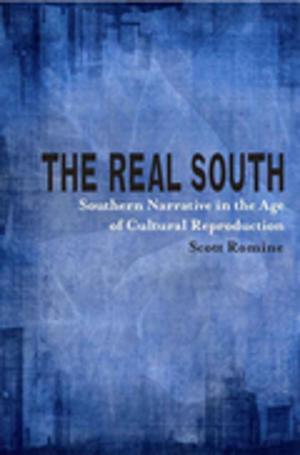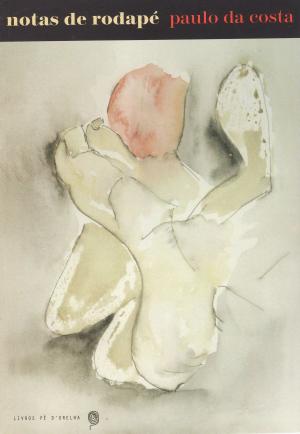Journal of Korean Adoption Studies
Volume 1, Number 1, Summer 2009
Fiction & Literature, Literary Theory & Criticism| Author: | Global Overseas Adoptees' Link | ISBN: | 9772092612003 |
| Publisher: | Global Overseas Adoptees' Link | Publication: | August 1, 2009 |
| Imprint: | Language: | English |
| Author: | Global Overseas Adoptees' Link |
| ISBN: | 9772092612003 |
| Publisher: | Global Overseas Adoptees' Link |
| Publication: | August 1, 2009 |
| Imprint: | |
| Language: | English |
Editor's note by Kim Su Rasmussen There is an urgent need to uncover, to collect, and to document the complete history of international adoption from Korea. The history of international adoption has so far been addressed in a fragmented or an inappropriate manner. Many individual stories have been left untold. Many important decisions have been shrouded in darkness. Many vital documents have been forged or altered. One of the purposes of Journal of Korean Adoption Studies is to contribute to the writing of the still unwritten history of international adoption from Korea. International adoption is an integral, yet mostly forgotten part of modern Korean history. Furthermore, international adoption is literally an embodiment of global capitalism and its deterritorialization. But, first and foremost, the unwritten history of international adoption belongs to the adoptees: the larger context in which the adoptees might understand their individual trajectory. In order to fully experience and understand an event, as Walter Benjamin once wrote, one needs to integrate an individual perspective with a collective history. Without a collective history, however, it is difficult if not impossible for the adoptees to fully understand their individual fate. It is unfortunate that many of the debates surrounding Korean adoption are locked in the static for or against international adoption. The controversy, essentially moral in character, hinders a nuanced investigation of the past and divides the community of adopted Koreans. Perhaps, instead of debating the moral value of international adoption in general, it might be wiser to describe international adoption as a morally gray zone in which intentions and effects are often contradictory. One of the aims of Journal of Korean Adoption Studies is to move beyond for or against. The first issue of Journal of Korean Adoption Studies is loosely focused on testimony as a particular form of expression that has been prevalent in many of the books, films, and artworks produced by Korean adoptees. Furthermore, much of the positivist research in the social sciences relies on various forms of testimony–for instance responses to questionnaires or longer interviews–as sources of information. Testimonies, however, are far from self-evident revelations of truth. They are both informative and performative, as Geoffrey Hartmann has noted, and in both respects they demand interpretation. Despite the widespread reliance on testimony as source of information, the notion itself and its epistemological status remain under-theorized in the field of Korean adoption studies. The growing prominence of adoptee testimonies might lead us to distinguish between history and memory: in addition to the history of adoption, we find a history of the memory of adoption. Adoptee testimonies are indications of a past that is still active in the present: the remnants of adoption, the traces of an event that is never completely over, the forgetting or repression of past events and their haunting return, the unfinished business of laying the past to rest. In this sense, as a parallel to Henry Rousso's classic description of The Vichy Syndrome in France, we might interpret the plethora of adoptee testimonies as indications of a collective adoption syndrome in Korea. Journal of Korean Adoption Studies is dedicated to all aspects of international adoption from Korea. The aim of the journal is to stimulate historical documentation, critical analysis, and interdisciplinary discussion of the entire range of phenomena associated with international adoption from Korea.
Editor's note by Kim Su Rasmussen There is an urgent need to uncover, to collect, and to document the complete history of international adoption from Korea. The history of international adoption has so far been addressed in a fragmented or an inappropriate manner. Many individual stories have been left untold. Many important decisions have been shrouded in darkness. Many vital documents have been forged or altered. One of the purposes of Journal of Korean Adoption Studies is to contribute to the writing of the still unwritten history of international adoption from Korea. International adoption is an integral, yet mostly forgotten part of modern Korean history. Furthermore, international adoption is literally an embodiment of global capitalism and its deterritorialization. But, first and foremost, the unwritten history of international adoption belongs to the adoptees: the larger context in which the adoptees might understand their individual trajectory. In order to fully experience and understand an event, as Walter Benjamin once wrote, one needs to integrate an individual perspective with a collective history. Without a collective history, however, it is difficult if not impossible for the adoptees to fully understand their individual fate. It is unfortunate that many of the debates surrounding Korean adoption are locked in the static for or against international adoption. The controversy, essentially moral in character, hinders a nuanced investigation of the past and divides the community of adopted Koreans. Perhaps, instead of debating the moral value of international adoption in general, it might be wiser to describe international adoption as a morally gray zone in which intentions and effects are often contradictory. One of the aims of Journal of Korean Adoption Studies is to move beyond for or against. The first issue of Journal of Korean Adoption Studies is loosely focused on testimony as a particular form of expression that has been prevalent in many of the books, films, and artworks produced by Korean adoptees. Furthermore, much of the positivist research in the social sciences relies on various forms of testimony–for instance responses to questionnaires or longer interviews–as sources of information. Testimonies, however, are far from self-evident revelations of truth. They are both informative and performative, as Geoffrey Hartmann has noted, and in both respects they demand interpretation. Despite the widespread reliance on testimony as source of information, the notion itself and its epistemological status remain under-theorized in the field of Korean adoption studies. The growing prominence of adoptee testimonies might lead us to distinguish between history and memory: in addition to the history of adoption, we find a history of the memory of adoption. Adoptee testimonies are indications of a past that is still active in the present: the remnants of adoption, the traces of an event that is never completely over, the forgetting or repression of past events and their haunting return, the unfinished business of laying the past to rest. In this sense, as a parallel to Henry Rousso's classic description of The Vichy Syndrome in France, we might interpret the plethora of adoptee testimonies as indications of a collective adoption syndrome in Korea. Journal of Korean Adoption Studies is dedicated to all aspects of international adoption from Korea. The aim of the journal is to stimulate historical documentation, critical analysis, and interdisciplinary discussion of the entire range of phenomena associated with international adoption from Korea.















